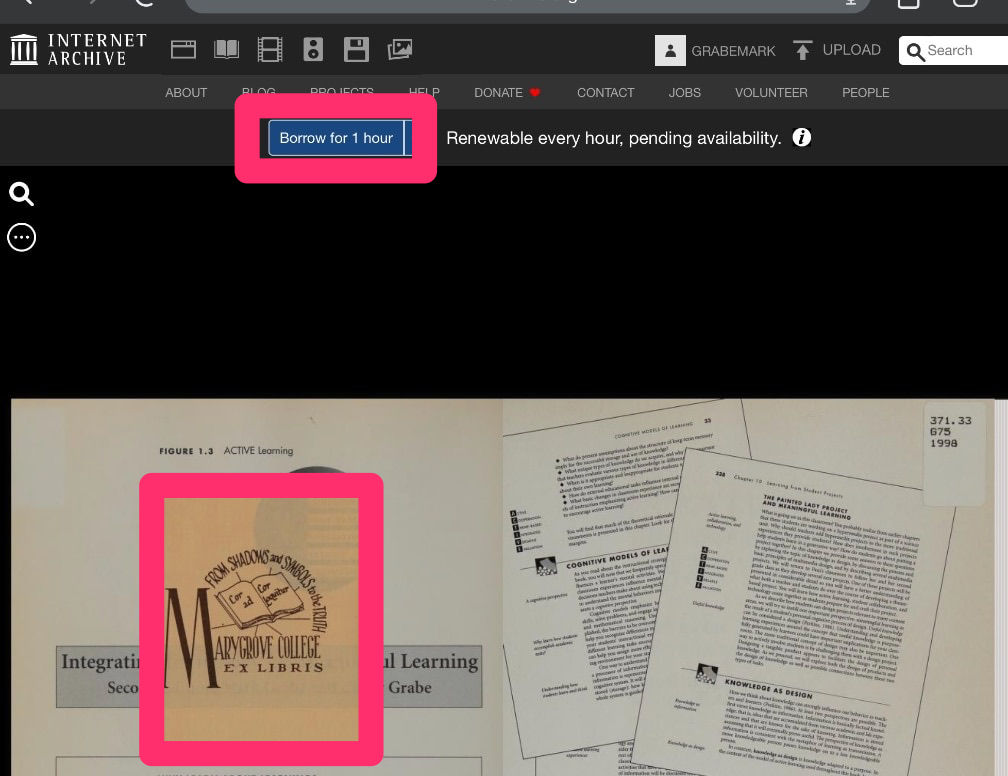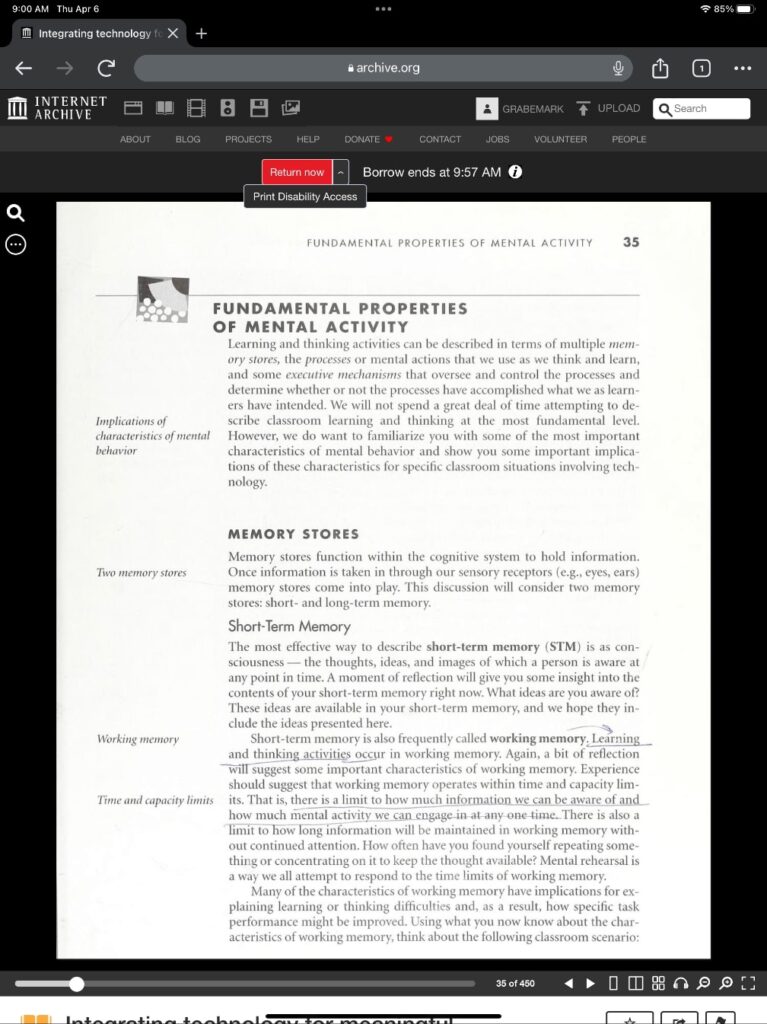You may be unfamiliar with the Internet Archives and the recent controversy of whether the Archives legally lends digital books in a way that honors copyright (for an example see this story). The Archives just lost a case in which they claimed they were functioning like other libraries. Lots of people don’t use libraries anymore and don’t understand that libraries loan audiobooks and “Kindle” books (digital books). You don’t even have to go to a library. Just have a membership in that library (have a library card) and you can download books.
Libraries can do this because they purchase a number of licenses for any digital book in their holdings. They can lend the number of books for which they have a license. The loans are for a file with DRM (digital rights management) that cannot be duplicated and kept or passed on. When the time for the loan is up, the file will no longer open.
The Internet Archives claimed this is what they were doing and the court that heard the case disagreed. Many feel that the Archives has been discriminated against in some way and that libraries and public access rules have been attacked. The concern is often expressed as an issue of greed and equity.
I was initially on the side of the Internet Archives mostly because I frequently borrow both Kindle and audiobooks from several libraries. I have tried in various ways to understand exactly what the issue was that made the Archives lending approach different. I thought maybe the Archives was loaning files without DRM that then allowed users to copy and share copies.
When I investigate issues that involve digital content I try to use material I am very familiar with. This is a way to rule out issues because I have a sense of what should be there. With this topic, I had the advantage of being able to access a book I wrote through the Internet Archives. Two editions of a textbook were available. The value of a textbook on classroom use of technology that is a dozen or so years old has modest value at best because things change so quickly, but there it was and copyright issues still apply even when you can no longer actually purchase that edition.
I found that I could easily access a book and “borrow” it online for an hour at a time. No waiting because a book has been committed to someone else, but with an old book this was not surprising. If you see the little box at the top of the page you see where I click to start the timer and reveal the full-text version.


Several things to observe from my example. First, it appears that access is limited (you have the resource for an hour, but can end your access early). However, I was able to just request access again. Second, and maybe not obviously, the books are used. This was the case with both editions I looked at. One had a library seal and both had underlining and annotations. Here is the thing about books that are not “first sale”. Whether these books were purchased used or donated there is nothing from the acquisition of a used book that compensates either the company or the author. Finally, I was curious about the one access for one license requirement libraries must honor. I found I could open a copy of the same resource on both my laptop and my iPad. I seriously doubt the archive has retained multiple copies of the used books it had photographed (the camera used in recording the page images is listed in the metadata).
So, the Digital Archives approach to lending books is nothing like the approach of actual libraries. I have been unable to find the details of the court reasoning process at the level I have provided here, but it does surprise me that the court reached the decision that it did.


You must be logged in to post a comment.